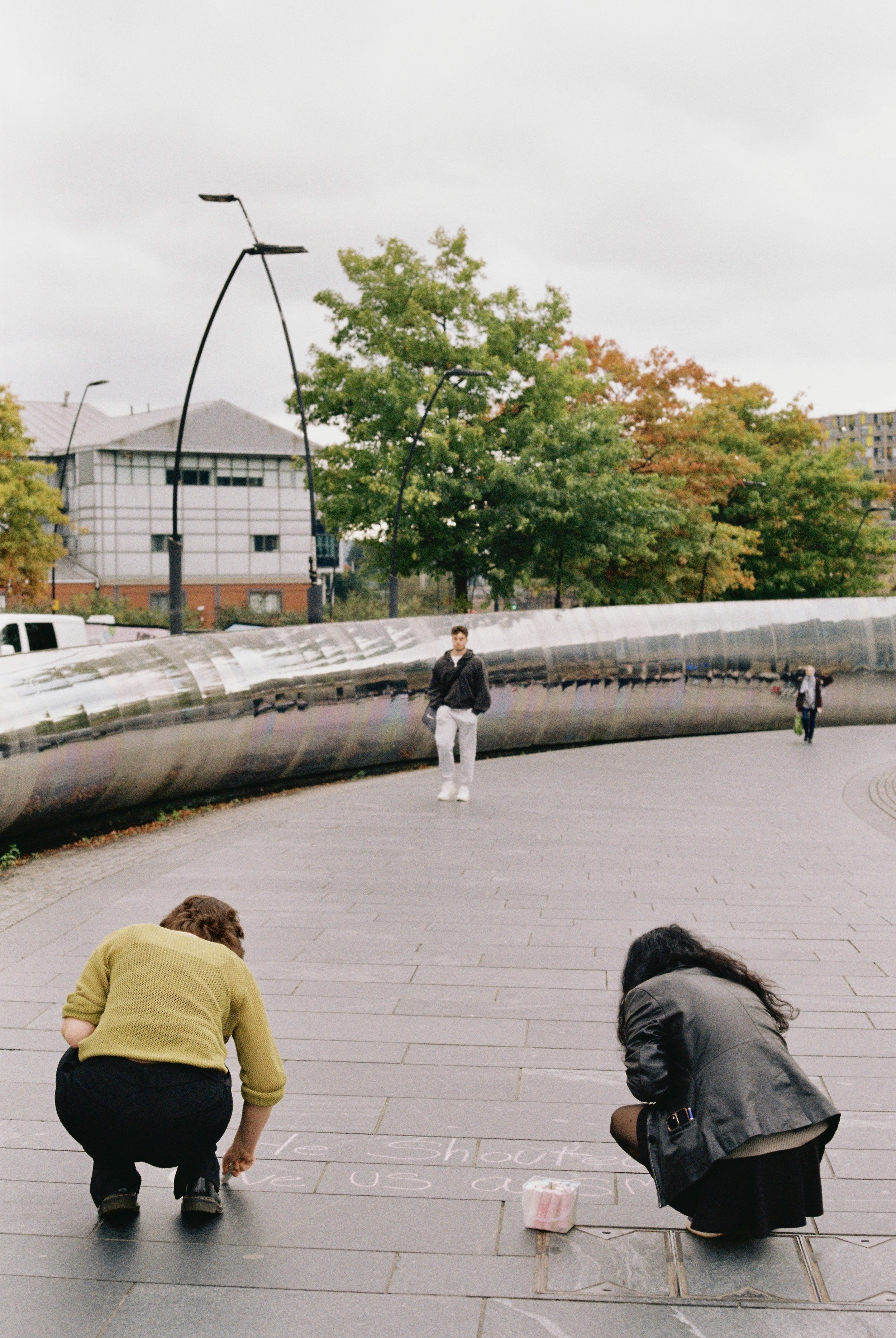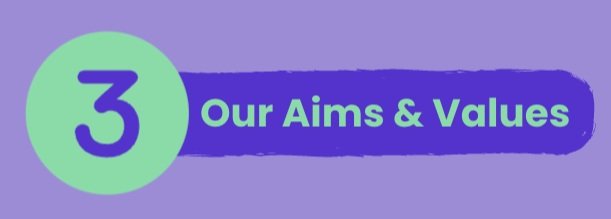The story so far....
-

2016
The first Catcalls account, @catcallsofnyc, was created. This helped spark the global youth-led Chalk Back movement.
-

February 2024
Babhravi and Flo met during their first year of uni and bonded over their shared values and interest in equality. After experiencing public harassment in their uni city, they decided to start @catcallsofsheff, with the aim of creating a platform to discuss everyday harassment and misogyny through an intersectional lens.
-

April 2024
The Instagram account was created and the chalking began! It instantly received an overwhelmingly positive response and @catcallsofsheff were interviewed by several student journalists towards the end of the month.
-

May 2024
The account continued to grow, gaining 1000+ followers and over 70 submissions. The BBC reached out to ask for an interview - their article about us can be found here.
-
September 2024
As both founders were away from Sheffield over the summer, plans to expand @catcallsofsheff were developed behind the scenes. This included website creation and action to tackle harassment in Sheffield clubs.
-

October 2024
The first in-person volunteer session was held as the volunteering network was established. Catcalls of Sheffield was also invited to the Violence Against Women and Girls Forum to discuss the campaign’s progress.
-

The future...
Babhravi and Flo have big plans and with a team of awesome volunteers, who knows what’s going to happen!
Meet the Founders
-
Babhravi is a politics, philosophy and economics student at the University of Sheffield. After learning about the Chalk Back campaign from Flo, the two joined together to build Catcalls of Sheffield. Her focus in the campaign has included designing the website and volunteer training schedule, doing research, and brainstorming ideas. She loves anything philosophy related and can usually be found reading, cooking, taking photos on her film camera or vintage shopping when not busy with activism.
-
Originally from Leeds, Flo is a politics student at the University of Sheffield. She became aware of the Catcalls of NYC account back in 2018. Frustrated by the normalisation of harassment and lack of effective support systems, she joined forces with Babhravi in April 2024 to set up Catcalls of Sheffield. Her focus in the campaign is mainly behind the scenes work- admin, finances, outreach, cooking up ideas and social media. Their research interests include transport, gender inequality, queer theory and geopolitics. In her spare time (when not chalking or writing) they enjoy cooking, charity shopping and walking. Oh and going to the pub. She loves the pub.
Aims & Values
Our theory of change focuses on integrating our values into a comprehensive strategy that provides long-term, proactive change in societal attitudes towards all kinds of harassment. Our values represent a person-centred approach which recognises the real-life effects that harassment and the way we discuss and respond to it can have.
Below, we’ve detailed our values, along with a description of how the actions taken throughout our movement enable us to achieve these aims. These actions are ever evolving to respond to what we think is needed in Sheffield.
-
Tackle the Idea that Life Can't Exist Without Harassment
There is often the assumption that harassment is a universal constant and that this cannot be changed.
Once, while chalking, we had someone claim to us that harassment was just “part of human nature”.
Upholding this myth leads to harassment being normalised and excused - people may think that although it’s wrong, there’s no way to stop it.
In tackling this idea we maintain that harassment isn’t a necessary part of existence or something that people inherently do - it is enabled by wider systemic inequalities and can be challenged through education and better systems of support.
-
Dismantle the Culture Around Harassment & Bigotry
“Boys will be boys”, “I was just trying to be friendly” - these are some of the many common excuses for harassment.
In dismantling the culture of harassment, we work to examine the narratives and discourse which surround it. The way that the media reports harassment can shape how people think about both the perpetrators and receptors of harassment, affecting how we respond and what kinds of support are offered.
-
Acknowledge that Harassment Occurs in a Variety of Forms and All Are Valid
Our campaign is for all those who have experienced harassment in its many forms. This includes sexual harassment, racial harassment, homophobic harassment, transphobic harassment, Islamophobic harassment, antisemitic harassment, or any other forms of bigotry.
We encourage everyone, regardless of identity, to submit their experiences to us. We are an intersectional campaign, meaning we understand how various structures of oppression work simultaneously to reinforce each other. We therefore recognise that harassment is experienced differently by different identities and that all forms must be highlighted and tackled.
-
Acknowledge Interlinked Forms of Inequality and the Impacts of Wider Systems
Harassment cannot be looked at as something that occurs in a vacuum - it is not an apolitical act, and therefore any treatment to its causes must be a political one.
Elements of power, identity and structural oppression are involved and must be examined for us to make meaningful change.
Inequalities between individuals of different races, gender identities, sexualities, abilities, classes and other identities form power structures that enable harassment to occur.
-
Empower Receptors of Harassment
Experiencing harassment, especially when support systems are often so lacking, can be frustrating, disempowering and potentially traumatic.
We want to empower people to feel comfortable voicing their experiences in a culture that often tries desperately to silence those who experience harassment. We want people who have been harassed to know that it is never their fault.
-
Raise Awareness
Whether it’s through our chalking or community events, we’re pushing the conversation about harassment to the forefront.
Despite being so rife, harassment is a topic so often ignored.
By sharing the experiences of those within Sheffield, we’re working to expose the structural issues that contribute to the issue of harassment.
-
Show Solidarity with Interlinked Struggles
Struggles for justice around the world are working to dismantle the same oppressive structures. Though the actions of activist movements may differ, our aims are so often one of the same. We stand in solidarity with all those fighting to better our world and make it a safer, more sustainable and supportive place for all.






